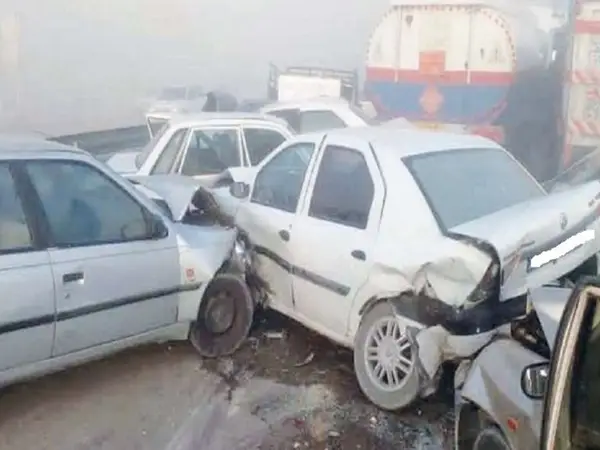Two massive multiple vehicle collisions in Iran’s southwest last week and the failure of the vehicles' airbags has caused public outrage at domestic automakers.
In comments in the days following the tragic accidents, chief of the Road Police Kamal Hadianfar said the airbags of all of the domestically produced vehicles had failed to operate and strongly criticized domestic automakers for the low quality of their products which he called "carriages of death".
Hadianfar demanded authorities to monitor the quality of domestically produced cars and implementation of safety and quality standards and said automakers sell their sub-standard products to people at the price of foreign-made vehicles.
Others, including Farhad Tamasebi, a member of the parliament's Industries and Mines Committee urged the Judiciary to launch an investigation into the failure of the airbags and the resignation or impeachment of the minister of industries.
The remarks of an official of the Automakers Association, Ahmad Nematbakhsh, about the failure of the airbags angered many including another road police official, Eynollah Jahani. Nematbakhsh claimed the airbags had not opened because the "the collisions' had impacted the rear of the vehicles".
"Sixty cars have collided and the airbags of none has opened because all of them were impacted from the rear?" Jahani asked and said automakers should try to improve the safety and quality of their products instead of trying to justify their shortcomings. He pointed out the failure of airbags and explosion of one of the vehicles involved in the collision were not isolated cases. "We witness similar technical defects and safety failures all the times," he said.
Iran has one of the world's worst traffic safety records with annual road fatalities of around 20,000.
Five were killed and tens were injured in the chain collisions on January 10 on the motorway connecting Behbahan and Ramhormoz in Khuzestan province that involved nearly sixty vehicles. Four of the vehicles burned to ashes in the accident.
Iran's quasi-government-owned automotive industry, the county’s largest after oil and gas, employs 700,000. It was valued in 2020 at $26.4 billion by India-based Modor Intelligence. The sector is in debt for billions of dollars and is a large burden for the government and its banks.
Road Police officials have repeatedly warned about inadequate safety standards of domestic cars. Speaking to the Iranian Students News Agency (ISNA) October 22, deputy chief oftraffic police, Taymour Hosseini, said road accidents were occurring due to inadequate safety standards as Iranian companies struggled to keep up with technology. "Big companies in the world are working on intelligent cars but we have dropped our expectations so much that we are happy with having anti-lock braking systems,” he said.
In a commentary Tuesday, the conservative Asr-e Iran news website said domestic automakers that are never held to account for the very low quality and safety standards of their products for many years have endangered the lives of tens of millions of Iranians with their unsafe products and dubbed the January 10 collisions automakers' "Behbahan Gate".
By protecting automakers' interests in many ways including by eliminating foreign competitors, Asr-e Iran said, the governments has become complicit in "murdering" innocent people. French companies
"It doesn't matter if reformists are in power or hardliners. Despite their political differences, when it comes to automakers, the knees [of both factions] give way and they relent [to automakers' wishes] as if they are under a spell," Asr-e Iran wrote and demanded "immediate shutdown" of the production lines of Saipa and Iran Khodro, Iran's two largest automakers, until the problem with airbags in their products is properly fixed.
